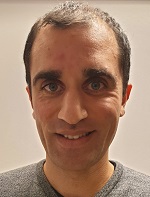Trial Lecture – time and place
See Trial Lecture.
Adjudication committee
- First opponent: Associate Professor Maria Kristiansen, University of Copenhagen
- Second opponent: Professor Pål Richard Romundstad, NTNU
- Third member and chair of the evaluation committee: Associate Professor Inger Schou Bredal, University of Oslo
Chair of the Defence
Associate Professor Valeria Vitelli, University of Oslo
Principal Supervisor
Head of BreastScreen Norway Solveig Hofvind, Cancer Registry of Norway
Summary
Breast cancer is the most common type of cancer affecting women in Norway and worldwide. Studies have shown lower breast cancer incidence, but more advanced disease among groups of immigrants compared to Norwegian-born women. All women aged 50-69 are offered mammographic screening biennially through BreastScreen Norway, with the aim of detecting tumours at an early stage and thereby reducing disease-specific mortality. Women targeted by the programme receive the same offer for mammographic screening, independent of their country of birth and other sociodemographic factors. Studies in other countries have shown that immigrants have lower mammographic screening attendance than non-immigrants.
Mammographic screening attendance among immigrants has not been explored in Norway. The aim of this project was to describe attendance in BreastScreen Norway among immigrant women and the outcome of screening examinations during 1996-2015. This project was carried out at the Cancer Registry of Norway, and supported by the Dam Foundation via the Norwegian Breast Cancer Society.
Our results showed that immigrants had lower attendance in BreastScreen Norway than Norwegian-born women, independent of country of birth, and also after adjusting for various sociodemographic factors. Further, we showed that breast cancer tumours among immigrant women were more often larger and of high grade than those among Norwegian-born women, even after adjusting for age and screening history. We interpreted this to indicate that immigrant women were diagnosed with breast cancer at a more advanced stage. In a qualitative study, we showed that a number of actors influence Pakistani immigrant women in Norway when they consider attending screening, and that these actors may influence individuals differently. In order to increase the likelihood of providing an equitable offer for mammographic screening, we concluded that measures should be taken to give immigrant women a more tailored offer to increase their awareness of, and attendance at mammographic screening.
Additional information
Contact the research support staff.
